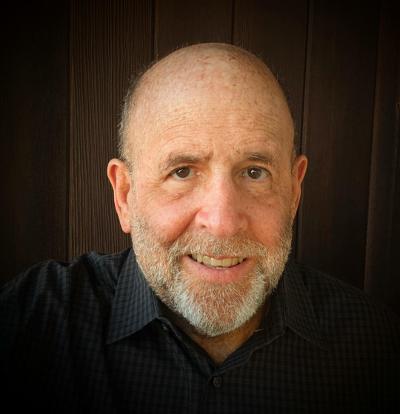
Andrew Malekoff
On March 18, the American Psychiatric Association published a revision of the Diagnostic and Statistical Manual of Mental Disorders. The DSM, first printed in 1952, is used by mental health providers to diagnose mental health illnesses.
“Prolonged grief disorder” is a new DSM diagnosis that allows health insurers to be billed by mental health providers for reimbursement for grief-related treatments and clears the way for funding for pharmaceutical trials.
Grief is a personal response, the deep sorrow related to the loss of a loved one. It is accompanied by bereavement, the time in one’s life when one’s grief and mourning are felt most deeply and one begins to adapt to life after the loss.
Preliminary studies have suggested that prolonged grief disorder affects roughly 10% of children and adults who are in mourning.
Before this new diagnostic category, if someone experienced depressive symptoms or posttraumatic stress and was grieving the death of a loved one, they would not meet the criteria for major depressive disorder and therefore would be unable to access reimbursable mental health care.
In the latest iteration of the DSM, to qualify as prolonged grief disorder, the death must have occurred at least 12 months ago and 6 months if the death was a child or adolescent. The bereaved person must exhibit various symptoms such as feeling as if part of you has died, disbelief, intense emotional pain, interpersonal difficulties, emotional numbness, feelings of life being meaningless and or intense loneliness.
Psychiatrist Lenore Terr, known for her research on childhood trauma, points to the emotional fallout of “one sudden external blow or series of blows rendering the young person temporarily helpless and breaking past ordinary coping.”
While a prolonged grief disorder diagnosis is a positive development in terms of triggering reimbursement, some practitioners believe that the DSM decision makers’ pathologizing grief is problematic.
As a licensed clinical social worker, I provided mental health care for many individuals and families experiencing loss, including parents of murdered children and 9/11 survivors.
Although there are universal stages of loss people tend to experience after the death of a loved one, when it comes to how one processes loss, no two grieving experiences are the same.
The time needed for bereavement varies from person to person. In some situations, the emotional and physical pain is so profoundly overwhelming, that the time for mourning can feel like an eternity. But does that make it pathological?
Grief is different for everyone.
NYU Professor of psychiatry Naomi Simon has addressed the gravity of loss during the COVID-19 pandemic, stating that “bedside goodbyes and social support were off the table. If you can’t process the permanence of the loss, it is difficult to move forward.”
“Prolonged grief generally presents with an inability to adapt to the loss,” Dr. Simon says. “You wake up and feel like your loss is brand new, over and over again.”
Grief can affect you in different ways. It affects the mind and body. It can trigger suicidal thinking and high blood pressure, for example.
Despite the benefits of a reimbursable diagnosis, there are a number of noteworthy objections to designating grief as a mental disorder.
Grief expert Dr. Joanne Cacciatore, associate professor of social work at Arizona State University, said: “I completely, utterly disagree that grief is a mental illness. When someone who is a quote-unquote expert tells us we are disordered and we are feeling very vulnerable and feeling overwhelmed, we no longer trust ourselves and our emotions. To me, that is an incredibly dangerous move, and short-sighted.”
Dr. Allen Francis, former chair of the Duke Department of Psychiatry said of the new diagnosis that, “there is no expiration date on grief, this insults dignity of the loss, stigmatizes normal emotions and will increase the use of unneeded psychiatric medications.”
“It’s almost like the goal is to take a completely normal emotional response and pathologize it so it can be given a [billing] code and monetized,” says Kansas clinical social worker Breck Mundis.
Whether or not you agree with the prolonged grief disorder designation in the new DSM, the fact remains that to access timely, quality mental health care and avoid paying exorbitant out-of-pocket fees, a validated diagnosis is needed to trigger reimbursement.
Bear in mind, there are many credible no-cost support groups for the bereaved.
When professional support is sought, however, health insurers are expected to adhere to the 2008 federal parity law. What does parity mean in mental health? The equal treatment of mental health and substance use disorders in insurance plans.
Parity law requires that health insurers that cover mental health care offer an adequate network of providers to ensure timely, affordable, quality care for all beneficiaries who need it. They often do not. Why? Because they pay providers substandard rates of reimbursement, which dries up their supply of providers.
When health insurers are found guilty of violating parity law, the monetary penalties handed down are simply the health insurers’ cost of doing business. The fines do not encourage future adherence, even when they are in the millions of dollars.
The health insurance industry has fallen woefully short of the standard set by law. Government has chronically neglected adequate enforcement, all of which further complicate bereavement for people who seek professional support, whether their grief is acute or prolonged.






